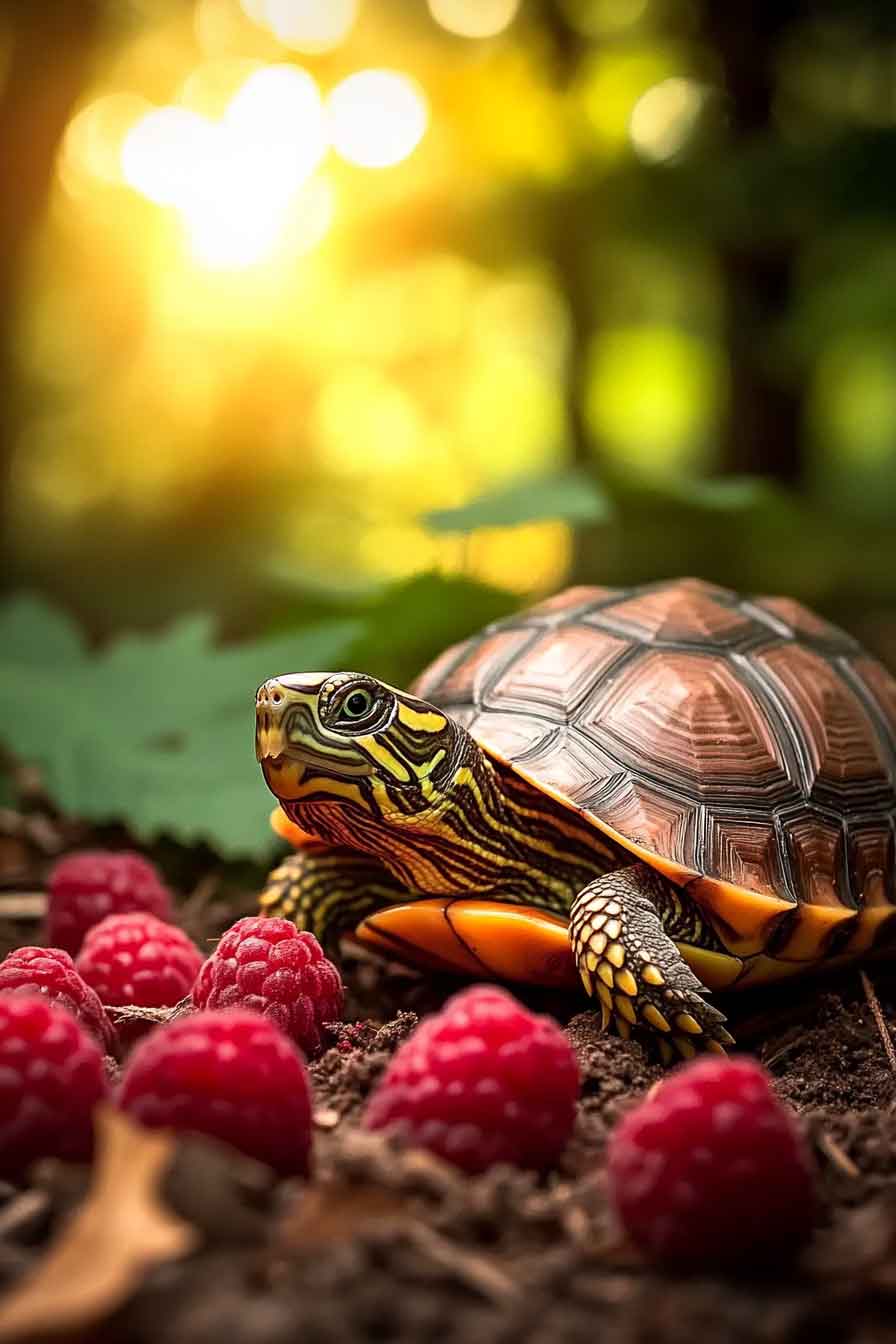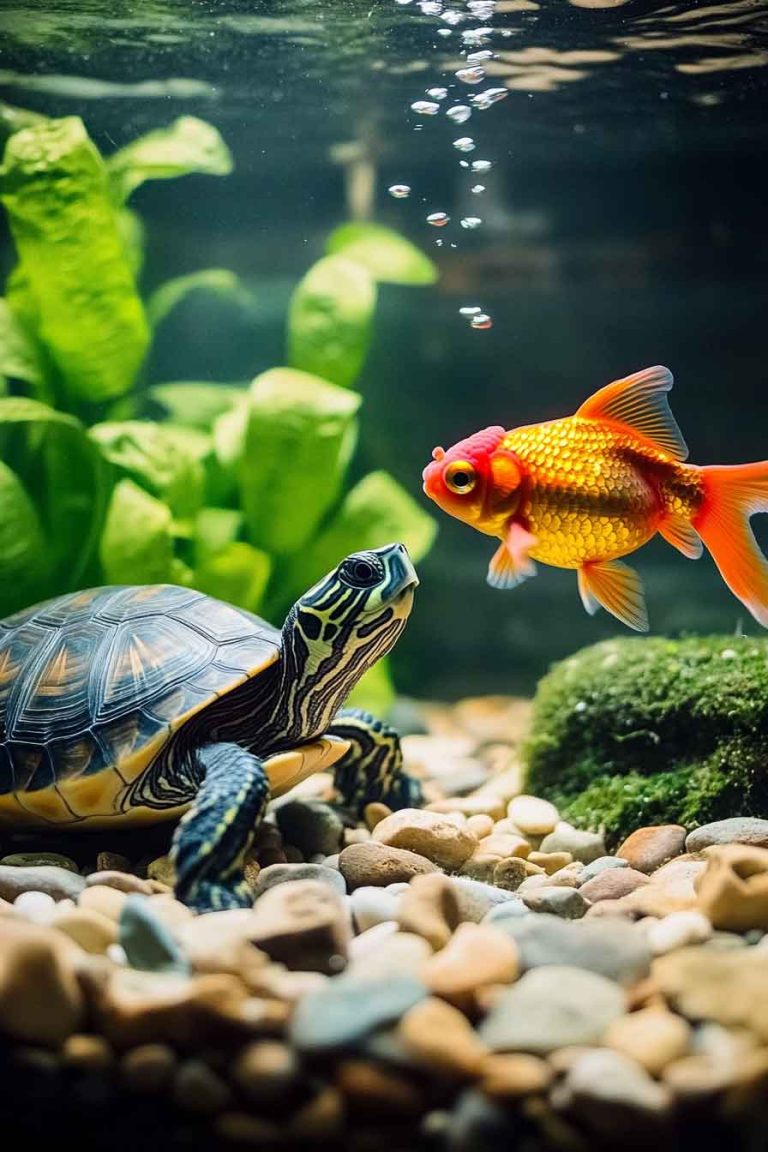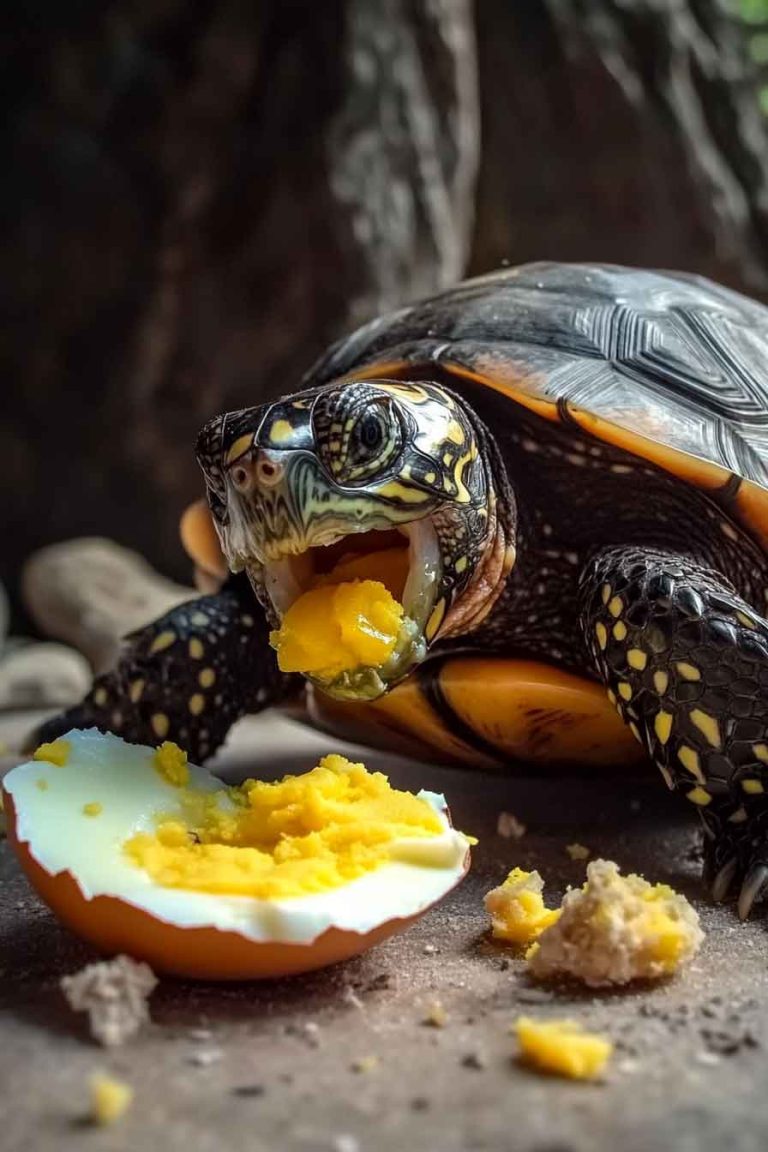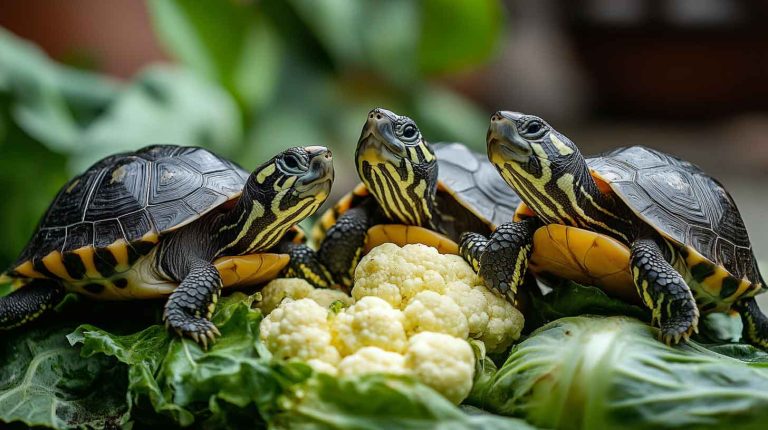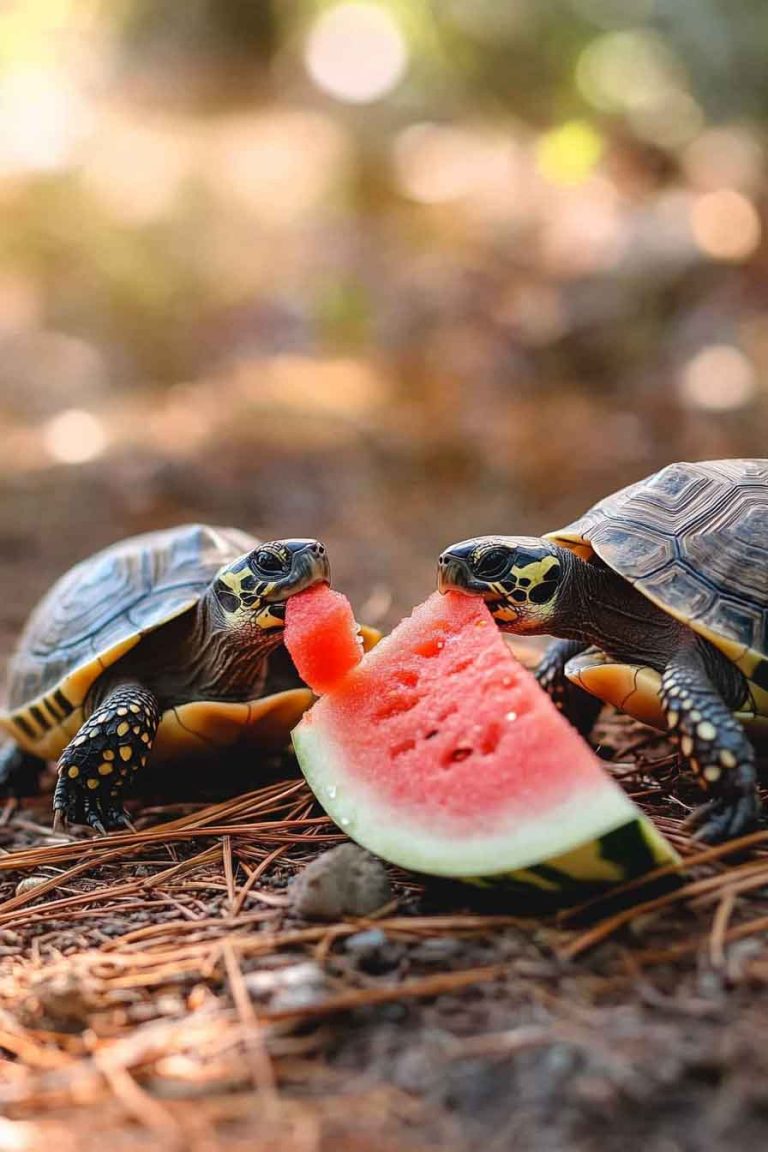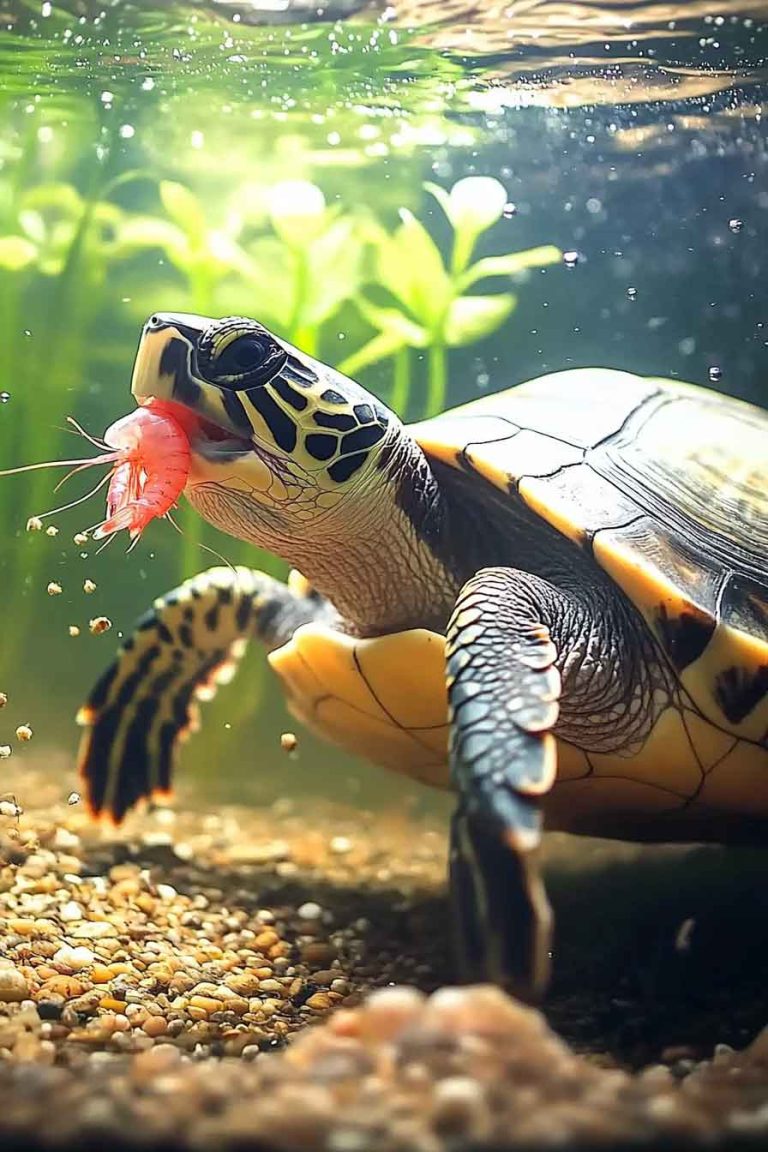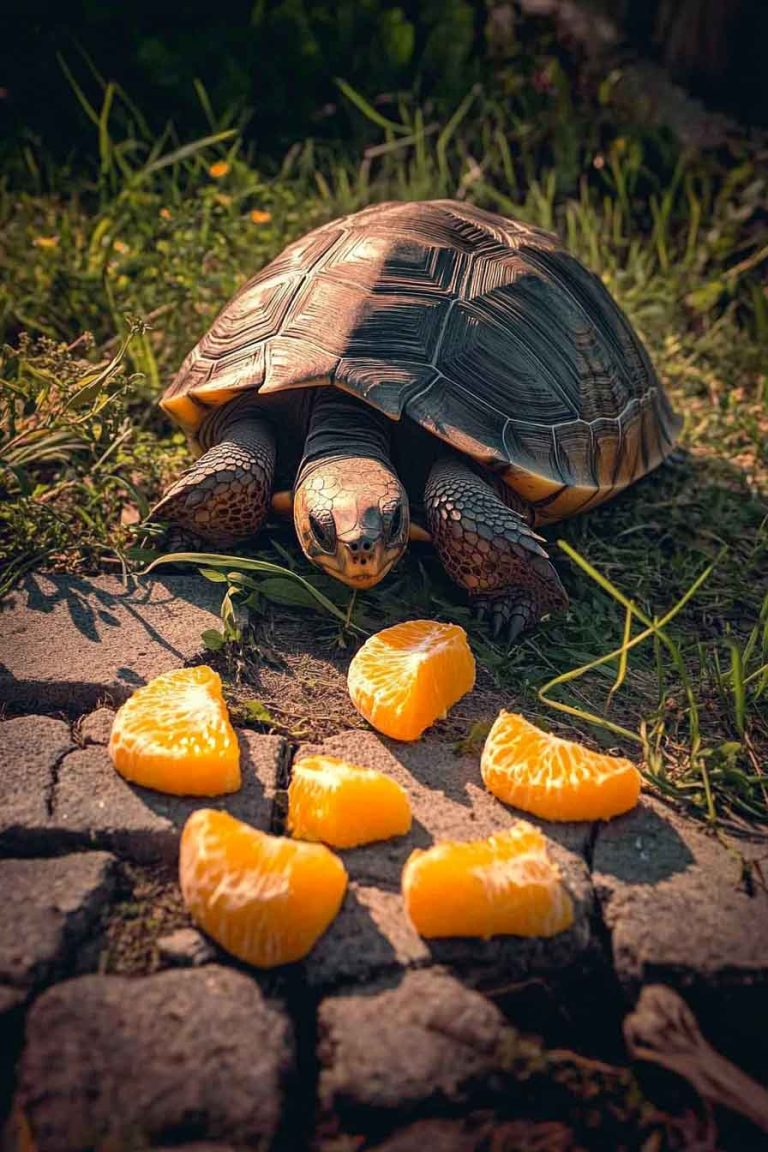Can Turtles Eat Raspberries? – Are Raspberries Harmful To Pet Turtles?
If you have a turtle like I do, you’ve probably wondered if you can share your snacks. I get it — raspberries look sweet and safe, right? But before giving your turtle a berry, let’s talk. So, can turtles eat raspberries? Yes — but only sometimes and only in small amounts. Raspberries are not toxic,…
If you have a turtle like I do, you’ve probably wondered if you can share your snacks. I get it — raspberries look sweet and safe, right? But before giving your turtle a berry, let’s talk.
So, can turtles eat raspberries? Yes — but only sometimes and only in small amounts. Raspberries are not toxic, but they can cause problems if your turtle eats too many.
In this post, I’ll explain why raspberries are okay sometimes, when they’re not, and how to feed them the right way. Let’s dive in, friend!
Can You Feed Raspberries to Your Pet Turtle?
Yes, but only as a treat. And I really mean treat.
My turtle LOVES raspberries. If I drop one in the tank, he swims right over and gobbles it up. But just because he likes them doesn’t mean they’re totally safe.
Raspberries have a lot of sugar. Turtles aren’t built to eat sugar the way we are. Their stomachs are slow and sensitive. Too much sweet fruit can cause bloating, upset digestion, and long-term health issues. That’s why I only give one small raspberry once a week. Sometimes even less.
Also, turtles need a diet with the right balance of nutrients. If they get too many sweet fruits and not enough leafy greens or protein, it throws off that balance.
So, yes — you can feed raspberries. But be smart about it. Just a little. And not too often.
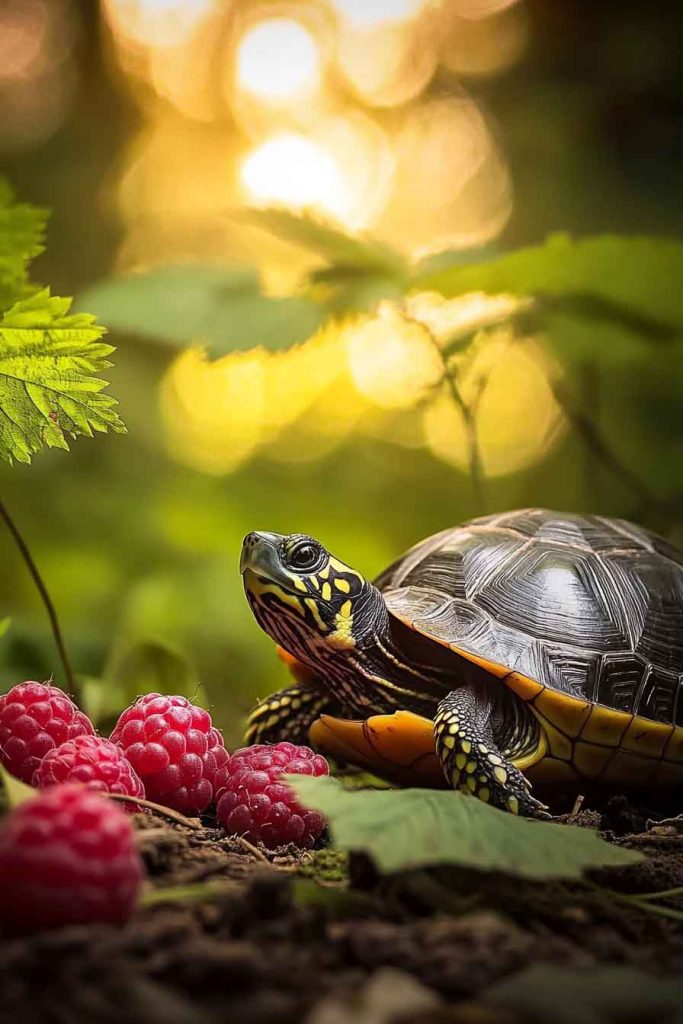
What’s in a Raspberry?
Okay, let’s break it down. Here’s what’s inside 100 grams of raspberries:
- Carbohydrates: 11.9 g
- Sugars: 4.4 g
- Protein: 1.2 g
- Fiber: 6.5 g
- Calcium: 25 mg
- Phosphorus: 29 mg
- Vitamin C: 26.2 mg
- Potassium: 151 mg
- Iron: 0.7 mg
Some of these are good! Vitamin C is great for health. Fiber is helpful. But sugar and phosphorus? Not so great for turtles.
Turtles need a 2:1 calcium to phosphorus ratio. That means twice as much calcium as phosphorus in their food. But raspberries flip that — they have more phosphorus than calcium. When that happens, phosphorus can block calcium in the turtle’s body.
That can lead to serious shell and bone problems, especially over time. One of the worst things? Metabolic Bone Disease. I’ve seen it in rescue turtles, and it’s heartbreaking — soft shells, weak bones, and slow healing.
So even though raspberries seem harmless, that phosphorus level is why I treat them like a “sometimes snack.”
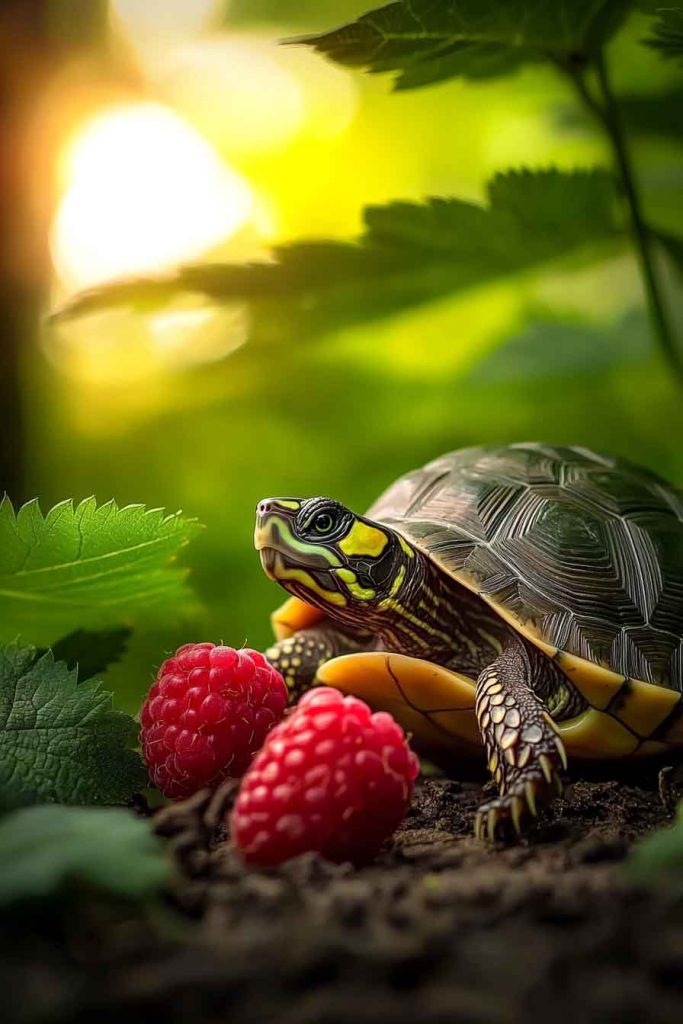
Are Raspberries Safe for All Types of Turtles?
Most pet turtles can eat raspberries in small amounts, including:
- Red-Eared Sliders
- Box Turtles
- Painted Turtles
- Russian Tortoises
- Yellow-Bellied Sliders
But some turtles handle fruit better than others. Box turtles, for example, are omnivores. They eat more fruits in the wild. Red-eared sliders? They’re more into greens and insects. I’ve learned this just by watching how mine behave — some go crazy for berries, others ignore them.
Still, no matter the type, I stick to one golden rule: No more than once a week. A tiny berry is enough. I usually mash it up or cut it into halves or quarters so my turtle doesn’t try to swallow it whole.
Do Turtles Even Like Raspberries?
You bet they do.
Raspberries are soft, juicy, and sweet — and most turtles love them. My turtle gets super curious the second I bring a raspberry near the tank. He sniffs it (well, sort of), and then bites it with those little jaws like it’s his birthday.
But just because they like it doesn’t mean it’s good for them all the time. Just like kids love candy, turtles love sweet fruit — but too much can make them sick.
What Happens If a Turtle Eats Too Many Raspberries?
Here’s the thing. I tried giving my turtle a few berries in one week. Just to see what would happen. He ate them, sure — but after a while, I noticed something weird.
He stopped being active. He looked bloated. And the poop? Not normal. It was mushy and smelled way stronger than usual.
That’s when I knew — even natural fruits can be too much.
Here’s what can go wrong if your turtle eats too many raspberries:
1. Digestive Problems
Too much sugar and fiber can cause tummy troubles. Turtles might get diarrhea, bloating, or just stop eating. Their systems are not made for all that sugar.
2. Calcium Problems
Raspberries mess up the calcium-to-phosphorus ratio. When there’s too much phosphorus, your turtle’s body can’t use the calcium it needs. This can lead to weak shells or even broken bones over time.
3. Liver or Kidney Issues
High sugar fruits — even natural ones — can stress the liver and kidneys if fed too often. That’s a slow problem. You might not notice it right away, but over time, it adds up.
So now, I only use raspberries as a once-in-a-while treat. And I always watch my turtle closely after feeding any new food.
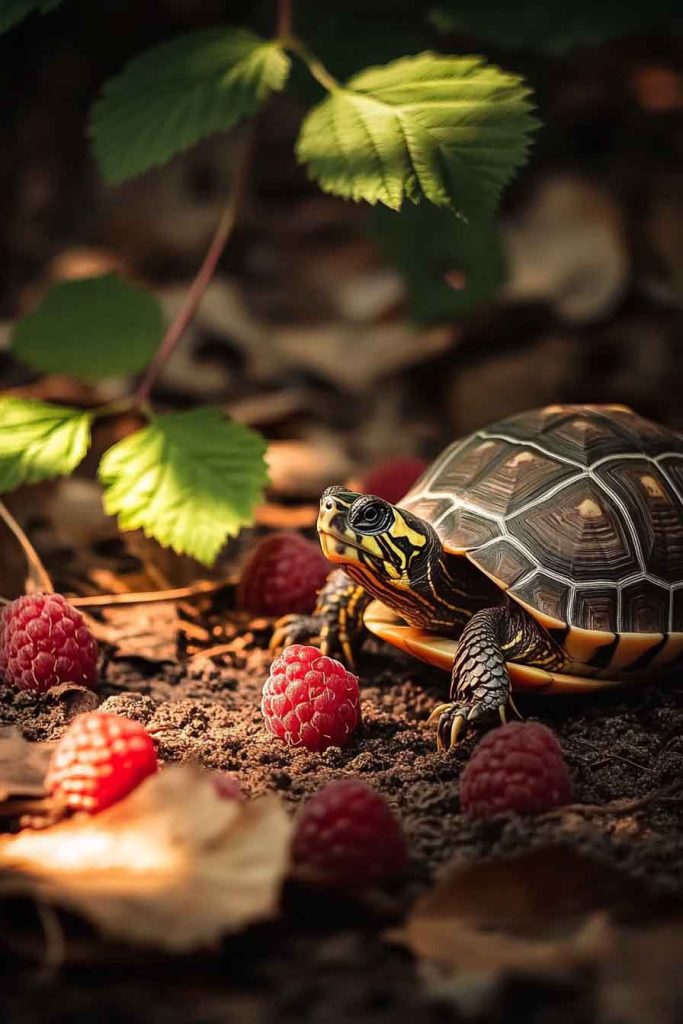
Can Baby Turtles Eat Raspberries?
Nope. I wouldn’t do it.
Baby turtles are still growing. Their shells are soft. Their bones are forming. And their stomachs? Super sensitive.
Even a small raspberry can be too much for a baby turtle. It can mess up their digestion or throw off their calcium balance — which is really dangerous at that age.
I feed baby turtles mostly high-calcium greens, soft proteins, and sometimes a little carrot or squash. Fruit comes way later — and even then, just a sliver.
How Often Should I Feed Raspberries to My Turtle?
Here’s what I do:
One small raspberry once a week. That’s it.
Sometimes I even skip a week. I treat it like dessert. Fun, yummy, but not needed.
I also make sure it’s fresh, washed, and cut into small pieces. If it looks mushy or old, I toss it. Turtles deserve fresh food just like we do!
Can Turtles Eat Frozen or Dried Raspberries?
Frozen raspberries? Only if they’re thawed first and have no added sugar. I sometimes defrost one and mash it up. My turtle likes it cold on hot days.
Dried raspberries? Nope. I don’t recommend them. They’re too sugary and sticky. Most dried fruits are packed with extra sugar or preservatives that turtles shouldn’t eat.
So stick with fresh — it’s the safest option.
Frequently Asked Questions (FAQs)
Can Box Turtles Eat Raspberries?
Yes, they can — in small amounts. Box turtles are omnivores, so they handle fruit better than some other turtles. I still follow the once-a-week rule.
Can Red-Eared Sliders Eat Raspberries?
Yes, but only a tiny bit. Red-eared sliders need mostly greens and protein. Fruit is not a big part of their natural diet, so keep it rare.
Can Russian Tortoises Eat Raspberries?
Yes, but very rarely. Russian tortoises do better with leafy greens and flowers. Too much fruit can mess with their digestion.
Can Aquatic Turtles Eat Raspberries?
Yes — but the same rules apply. Fruit is fine as a treat, but never as a main food. Always remove uneaten fruit from the water quickly so it doesn’t rot.
Conclusion
So, can turtles eat raspberries?
Yes — but only sometimes.
I give my turtle one fresh, clean raspberry as a treat every now and then. It’s fun to watch him munch on it, but I’m always careful not to overdo it.
Raspberries are sweet, soft, and safe in moderation. But too many can lead to tummy trouble, shell problems, and long-term health risks. Always put your turtle’s health first.
Hope this post helped! If you’ve tried feeding raspberries to your turtle, I’d love to hear how it went. Drop a comment or share your turtle’s favorite treat below!

